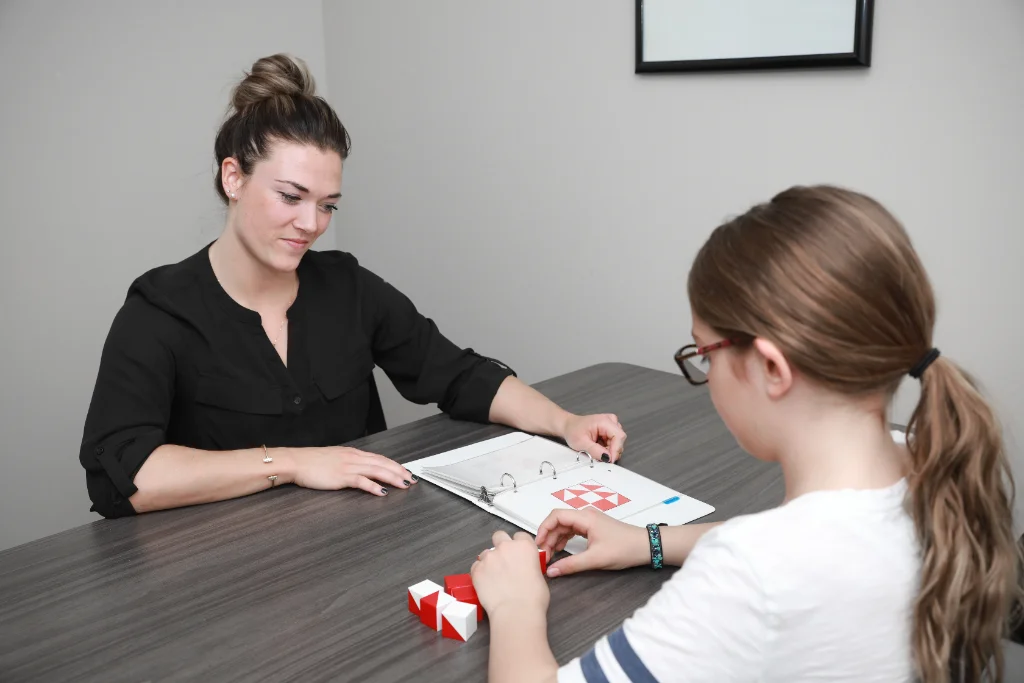
B.A. vs. B.S. in Psychology: What is the Difference?
When choosing between a B.A. and a B.S., many people simplify the difference by assuming that a B.A. is related to the arts and a B.S. to science.
Request Information
However, it's not always that straightforward. For instance, you can earn either a B.A. or a B.S. in Psychology, representing the same field and the same level of education but different degree types. What exactly does this mean for prospective students? Read on to discover the nuances of the B.A. vs. B.S. in Psychology and what each degree can offer regarding career paths, academic focus, and future opportunities.
Key Takeaways
- A B.A. in Psychology focuses on social, cultural, and human aspects, while a B.S. emphasizes research, science, and analytical skills.
- The B.A. is ideal for people-centered careers like counseling and marketing, whereas the B.S. prepares students for research and healthcare roles.
- Both degrees at UND share a strong psychology foundation, require 120 credits, and offer real-world experiences like research projects and teaching assistantships.
- Psychology graduates enjoy strong career prospects with a 7% job growth rate and a median salary of $92,740 as of 2023.
What is a B.A. in Psychology?
A Bachelor of Arts (B.A.) in Psychology is a degree that gives you a deep understanding of how people think, feel, and behave, covering everything from cognitive processes and emotions to social interactions and human development. UND's B.A. in Psychology is a mix of theory and real-world application, meaning you'll also get hands-on experience through research projects, teaching assistant opportunities, and community engagement, in addition to learning about psychological theory, all of which help you see how psychology plays out in everyday life.
What is B.S. in Psychology?
The Bachelor of Science (B.S.) in Psychology offered by UND emphasizes research methods and quantitative analysis. This degree is designed to prepare students for research-intensive graduate programs by equipping them with the advanced skills necessary to succeed.
What is The Difference Between a B.A. And a B.S. in Psychology?
The main difference between a B.A. and a B.S. in Psychology is that a B.A. focuses more on the social, cultural, and human aspects of psychology, while a B.S. is more scientific, emphasizing research and biological foundations.
Head-to-head Comparison
While both degrees share a foundational core in psychology, the differences between them—ranging from the type of coursework and the difficulty level to the job opportunities and specialization options available post-graduation—can significantly shape your future trajectory.
To help you navigate these crucial distinctions, we've created a side-by-side comparison that breaks down the key aspects of each degree. This will allow you to make an informed decision based on your unique strengths and vision for the future.
B.A. vs. B.S. in Psychology
| Aspect | B.A. in Psychology | B.S. in Psychology |
|---|---|---|
|
Curriculum |
The B.A. degree in Psychology has more flexibility in course choices and incorporates more coursework from the humanities. |
The B.S. degree requires additional research methods and lab-based coursework, as well as additional coursework in mathematics related to empirical research and analytical skills. |
|
Job Opportunities |
Suitable for careers in counseling, social work, human resources, marketing, education, and other people-oriented fields. |
Better for research roles, healthcare-related jobs and technical psychology careers. |
|
Difficulty Level |
Emphasizes the humanities while incorporating less intensive quantitative and research methods. |
More challenging due to the heavy science, statistics, and research components. |
|
Program Delivery |
On-campus |
Online |

B.A. vs B.S. in Psychology: Similarities Between the Programs
When looking at the Bachelor of Arts and Bachelor of Science degrees in Psychology at UND, it's clear that both programs are built on the same strong foundation of psychological principles. This ensures that students, regardless of their chosen path, receive a deep and well-rounded education in understanding human thoughts, emotions, and behaviors, which is essential whether they plan to enter the workforce right after graduation or continue on to advanced studies in psychology or related fields.
One of the most significant similarities between the two degrees is that both require students to complete a total of 120 credits, with at least 36 of those credits being numbered 300 or above, while at the same time, at least 30 of those credits must be earned directly from UND, which guarantees that students get the benefit of the university's faculty expertise, research opportunities, and academic resources no matter which degree track they choose.
Regardless of the degree path chosen, UND offers opportunities for students to participate in hands-on research projects, earn credit through teaching assistantships, and engage in community activities, all of which are designed to enrich the educational experience and prepare graduates for successful careers in various settings, including mental health centers, research institutions, and nonprofit organizations.
With either degree, graduates are well-equipped to pursue advanced degrees and specialized certifications that can significantly enhance their career prospects and open doors to some of the highest-paying jobs in the field of psychology. They can pursue advanced degrees in specialized fields, such as a master's degree in forensic psychology, which prepares them for psychology-related roles in the criminal justice system, or Ph.D. programs in counseling psychology or clinical psychology, leading to careers as counseling psychologists, clinical psychologists, college professors, clinical directors, etc. Additionally, they can obtain certificates in areas like behavioral health and forensic psychology, which offer targeted training and credentials that are highly valued in the job market.
Finally, both degree programs are supported by a faculty of experts specializing in areas such as clinical psychology, health psychology, and the intersection of psychology and law, providing students with valuable mentorship and insights that enhance their academic journey and professional development.
Career Opportunities in Psychology
Graduating with a psychology degree makes it possible to take the knowledge and skills you've gained in the classroom and apply them to diverse, meaningful roles that directly impact people's lives.
With a psychology degree, you'll be prepared to explore unique career paths in industries like marketing and research, in addition to traditional roles in psychology.
Psychology degree graduates find success in a variety of job settings, with the most popular being:
- Community mental health centers
- Family services
- Hospitals and nursing homes
- Marketing research/technician
- Nonprofit organizations related to psychology, substance abuse, or mental health
- Research
- Schools and universities

Is a B.A. or B.S. in Psychology Worth It?
Short answer: Yes! A B.A. or B.S. in Psychology is worth it. Here's why.
One of the most compelling reasons to pursue a degree in psychology is the fact that the median annual salary for psychologists in 2023 reached an impressive $92,740 per year, according to the U.S. Bureau of Labor Statistics. Those who continue their education with graduate studies or specialized certifications can further increase their earning potential.
Additionally, the 7% projected job growth rate through 2033 highlights another perk that ensures that those who enter the field will continue to find meaningful and fulfilling career opportunities.
Furthermore, for students considering an online psychology degree, UND offers an exceptional program that has been recognized as the #1 best online college in North Dakota by Forbes, providing over 160 online programs to support students in achieving their educational and professional goals.
The flexibility of an online degree allows students to balance their studies with work, family, and other commitments, making it an accessible option for those looking to advance their careers in psychology without putting their lives on hold.
Start Your Career in Psychology with UND
If you're considering a career in psychology and looking for a program that offers both flexibility and quality education, the University of North Dakota (UND) has the perfect options to fit your needs.
At UND, students have the flexibility to choose the psychology program that best fits their needs and career aspirations. The B.A. with a major in Psychology is available as a full- or part-time program offered 100% online, while the B.S. with a major in Psychology is available as an on-campus program. No matter which path you choose, UND provides an excellent foundation for a successful career in psychology.
FAQs
Psychology degrees can be either a Bachelor of Arts (B.A.) or a Bachelor of Science (B.S.), depending on the focus of the program.
Neither degree is inherently better than the other; the choice depends on your career goals and interests.
A B.S. in Psychology typically includes more coursework in math and science, making it more challenging for some students compared to a B.A., which emphasizes humanities and social sciences.
Salary differences depend more on career path than degree type. Clinical psychology is among the field's highest-paying areas, especially specializations such as neuropsychology or forensic psychology.
Yes, a B.A. or B.S. in Psychology is typically the first step toward becoming a therapist, but you might also need a master's or doctoral degree and licensure, depending on your career aspirations.
Technically, yes, switching from a B.A. to a B.S. in Psychology (or vice versa) is possible. However, you may need to make adjustments to fulfill course requirements.